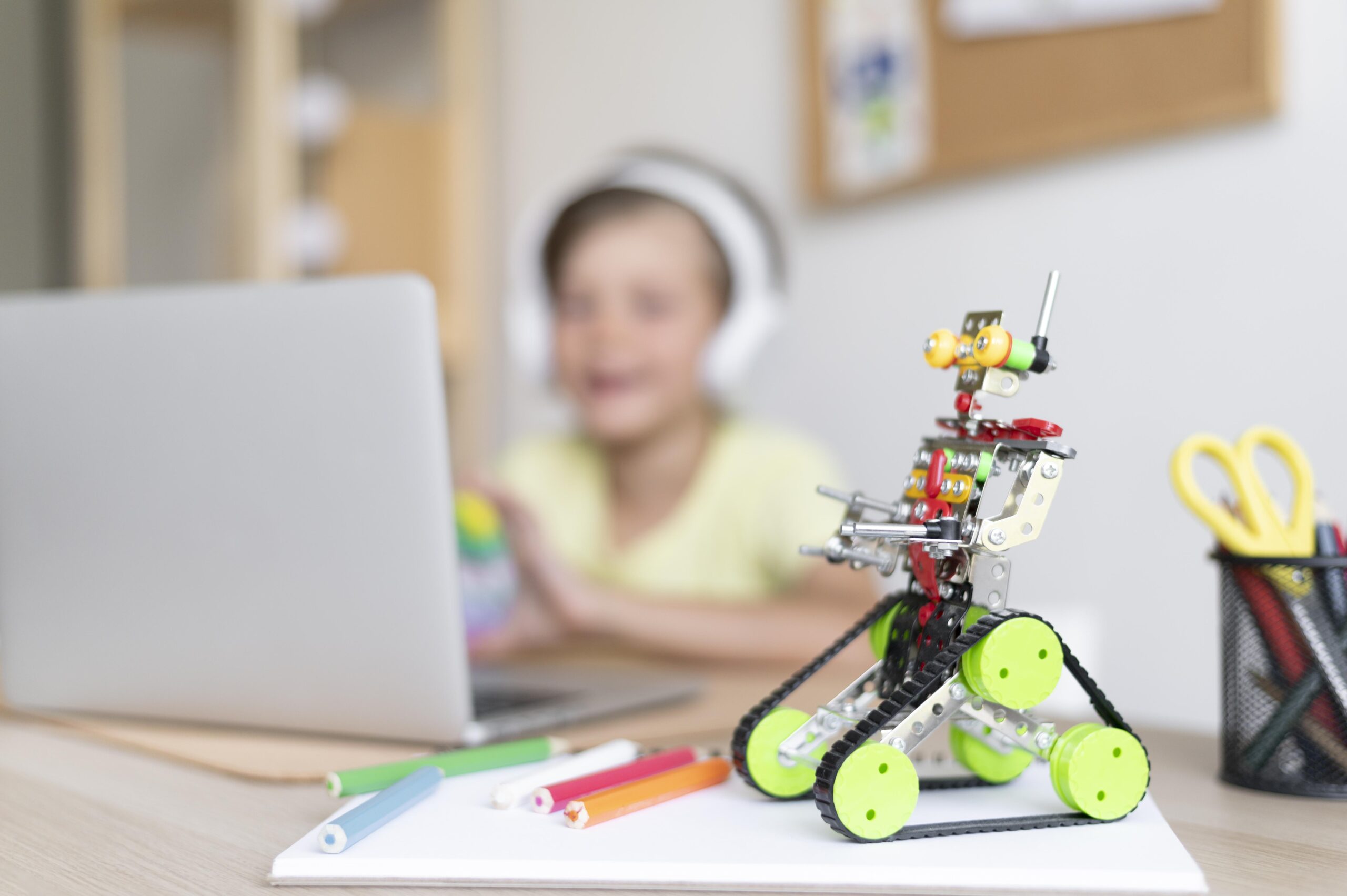What Do Students Learn in Robotics Camps and Classes? Why should Kids Learn Robotics?


One of the most appealing aspects of robotic camps or programmes for children is the opportunity to learn how to build their robots from the ground up. They can learn the skills, information, and techniques needed to create robots with unique applications and functions.
The best part about robotics camps and programmes is that students learn how to construct a completely functional robot on their own. However, that isn’t the only skill they acquire. The following is a list of topics covered in robotics camps and classes.
Also Read: Reasons That Kids Should Learn Robotics Online: Become Aware About the Technical Era


What do Students Learn in Robotics Camps and Classes?
You are cultivating your children’s imaginative and brilliant nature at an early age by sending them to robotics camp or allowing them to attend classes. The more they learn about manufacturing robots and practise the art, the more likely they are to develop a passion for it, improve their skills, and eventually turn it into a career.
Engineers, scientists, innovators, and programmers will continue to be in high demand as technology advances, so youngsters who are interested in robotics and excel at it at a young age will have a major edge in building a prosperous future.
Learning courses for your kids! Get a free trial here
Robotics for Kids
Coding is a crucial component of robotics. A robot must have a working code, similar to a brain, that commands it to move and do other things to function. Students will learn how to programme the robot’s brain through coding in robotics camps and classes, in addition to learning how to build the robot’s body from components.
As numerous sectors and society as a whole continue to digitise, learning to code is a vital skill to have. As we go into a digital world when businesses operate more online than offline and social media is the primary pillar of social and economic infrastructure, the demand for coders who can incorporate and develop will skyrocket.
Also Read: What is Robotics for Kids? Introduction of Electronics Lessons for Kids
Robotics for Children
Science and math are at the heart of robotics. Building a robot necessitates a thorough knowledge of both of these areas. Part measurements must be precise to assemble a robot. The dimensions and other things of each component have a significant impact on the robot’s operation.
Similarly, the way the robot moves and theorises the concept of utility necessitates physics and logic skills. It will not work as intended if the calculations for either the coding or the weight distribution of the robot are incorrect, even if it is only a minor error.
Helps in Building Perseverance
What goes invisible behind the scenes when students develop a completely functional robot is countless hours and weeks of ongoing speculating, computations, stress testing, and equating. You could say that a working robot is the result of many hours of hard effort in science and math that has finally paid off.
Not only does this indicate that the students have been doing more than their homework or assignment syllabus would have suggested, but it also demonstrates their strength, endurance, and enthusiasm for the trade.
Learning courses for your kids! Get a free trial here
Robotics Classes for Kids
Students learn to code, get a basic understanding of math and science, and develop collaboration and leadership abilities as they create robots. This is everything they’ll need for a successful future profession, especially if they desire to pursue STEM. Log in to Real School right now if you’re interested in sending your child to a robotics camp or class, or introducing a robotics programme to your school.
Conclusion
Students will not immediately begin developing robots as an individual project after attending robotics camps and classes. Building robots is so time-consuming that it would take even adult months to accomplish. As a result, students are divided into small groups of two to six kids who work together to create a single fantastic robot.
Students’ soft skills, such as social skills and leadership, are developed from the start when they are encouraged to work cooperatively on tough projects at a young age. This is extremely beneficial to them, especially if they continue to develop these skills into adulthood, and it affects every aspect of their lives.
Also Read: How Robotics and Drones Can Be Used to Teach Coding for Kids? Let’s Get the Best Information!
Recent Posts
What are the Advantages of Online Teaching at The Real School?
In the article -"What are the Advantages of Online Teaching at The Real School?" we…
What is the Full Form of School?: Unveiling the Acronym
The term "school" carries profound significance in the realm of education, representing more than just…
What is Math Full Form?: Cracking the Code
Mathematics, often referred to as "Math," is a subject that elicits various reactions from students…
What is Full Form of Homework?: Decoding Academics
Homework, an integral part of the academic journey, often raises questions about its purpose and…
What is Full Form of Teacher?: Demystifying Education
In the intricate tapestry of education, teachers stand as the pillars shaping the intellectual and…
What is Real Education?: Discovering Its Essence and Impact
The concept of real education is evolving, transcending traditional views that equate it solely with…


